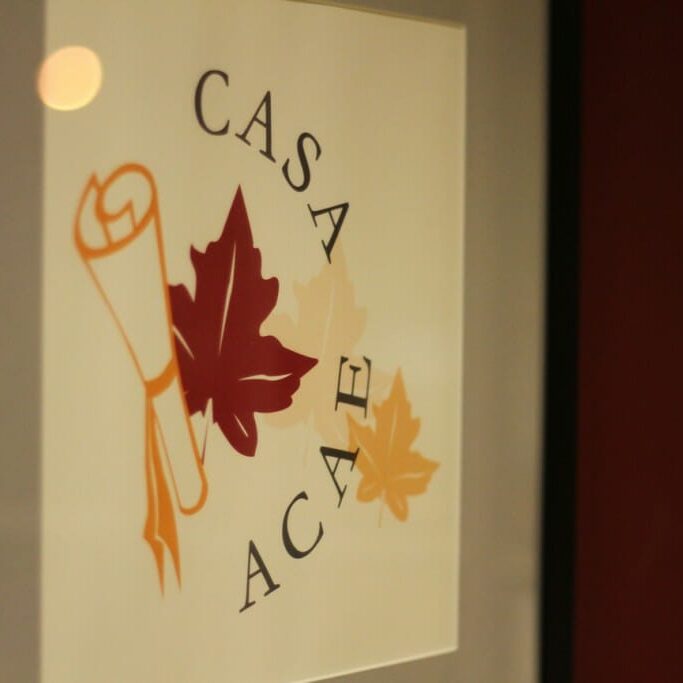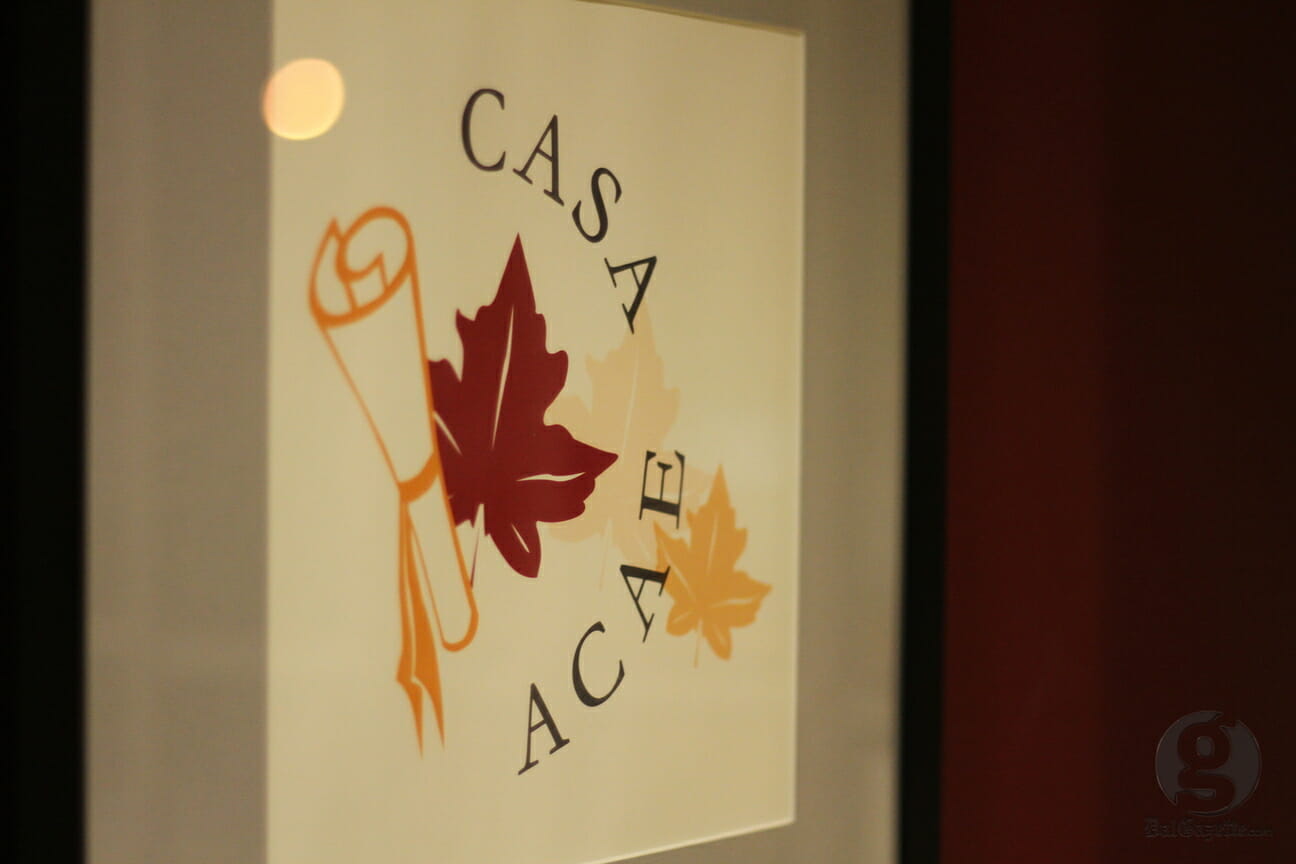
The Dalhousie Student Union (DSU) executive is proposing that the DSU withdraw from the Canadian Alliance of Student Associations (CASA). They hope to turn funding towards a new staff position responsible for “advocacy research and strategizing,” according to a proposal emailed to council last month.
“Our focus needs to be at a local level, at a provincial level, at a Dal level,” says Jamie Arron, DSU president.
“We’re facing a $17.5 million shortfall this year, which will affect us for years to come. I don’t think people understand how grim things are looking.”
The proposal, titled “Strengthening Advocacy,” reads: “as the largest school in the Maritimes, we believe we have to do more than simply outsource our advocacy, we need to pursue ‘by Dalhousie, for Dalhousie’ solutions on the issues that most directly affect our campus (e.g. via establishing a research and strategy coordinator).”
CASA is a non-partisan, not-for-profit national student organization made up of 25 student groups, representing over 300,000 students in Canada. They lobby federally on behalf of universities across the country for a more accessible secondary education system.
“Membership with CASA for Dal gives us a lobbying voice federally in Ottawa,” says Thomas Eaton, the computer science representative on council.
“Mainly a lot of our efforts have been focused provincially because we’re not in Ontario, so we mainly lobby the provincial government. So, CASA is responsible for a lot of our federal lobbying goals, so we meet with them and help set the agenda on what CASA would lobby on.”
Dal is one of the founding members of CASA, established in 1994 by universities without a federal lobbying group and universities with the Canadian Federation of Students who were unhappy with their representation.
The current proposal would lower the DSU to ‘associate member’ status for the year of 2013/2014. Another vote would be held next year, which would confirm the DSU’s complete withdrawal.
Some people, such as health professions rep Andrew Mecke, say the proposal came out of nowhere. The issue was never brought up earlier, Mecke says, and adds that taking Dal out of CASA was not part of Arron’s presidential platform last year.
Both Eaton and Mecke are planning to run for DSU executive positions.
The emailed proposal also includes constitutional amendments that would limit the DSU from joining any external organizations like CASA “whose policies contradict or propose to supercede those of the Unions,” as well as joining any organizations which would be “excessively strenuous to exit from”.
“We haven’t seen the exact language yet,” says Eaton.
“We’ve only seen hints at what this amendment would mean, and it seems that council can overrule that. It seems like a pretty flimsy attempt to block us from joining another organization when it should be up to council to decide that.”
Feb. 13 was the first time the executive brought the plan to council, and it was emailed to council members four days later. It has yet to be discussed.
Word of the proposal made it to several former presidents, including Chris Saulnier, president from 2010-2012. Saulnier and his fellow former executive members sent an email to council and the executive on the matter.
“Submitting this letter is not a decision that I, or this group, undertook lightly,” wrote Saulnier.
In the letter, six former presidents and one former VP (education) defended CASA and spoke of the importance of Dal’s membership. They’ve also asked that the email be “officially received by council at the next meeting and entered into the minutes.” The letter states:
“CASA was built on the understanding that students are stronger together than apart. The needs of students will change over time, and the democratic nature of CASA means that if members like the DSU put in the effort, so too will CASA change.
“Like any democratic organization, nobody is going to be happy with all of the decisions all of the time. Walking away from CASA is calling it quits on democracy.”
Arron replied to the email:
“Whenever you’re pursuing a significant change within an organization, it’s going to cause a bit of angst from folks that have been traditionally involved with one approach But those folks—and I have a lot of respect for a number of them—hadn’t even heard our proposal first before they had a knee-jerking gut reaction. And I think this demonstrates the need for this kind of debate.”
Aaron Wolf, VP (internal), says he plans some kind of discussion.
“What we’ve done so far is said to council is that we’re going to have this debate, we’re going to bring in someone from CASA to talk to council about it, and debate it there. We haven’t given a whole lot of information yet because we don’t want to give everyone just our side of it.”
Wolf adds that the executive is unanimously in favour of the proposal.
But in addition to discussion with council, Mecke has problems with what he calls a lack of discussion with the student body.
“This is mind-blowing to me,” says Mecke. “I’m less concerned with the idea and more so with the process that they’ve taken,”
“While the very idea of withdrawing from our national lobby group is a joke, the way that they’ve done it goes against pretty much everything that they said they would do and everything they campaigned on last year.”
Aaron Beale, VP (academic and external), is largely responsible for how CASA is represented and understood on campus. His role on the executive council is to inform students about academic issues, and to represent students via various university committees and through municipal, provincial, and federal lobby organizations such as CASA.
“Now he’s standing up in council and saying that this shouldn’t go to a vote because most students don’t know what CASA is. It’s his job to let people know what CASA is and does. Rather, he’s spent his year planning protests with puppies.”
Beale declined to comment.
Council will discuss withdrawing from CASA on March 13, listening to the executive’s proposal as well as a presentation by a representative from CASA. The proposal to withdraw from CASA will not be brought up at the Annual General Meeting (AGM), according to Arron.
“The executive has said that students do not understand our commitment with CASA and therefore it shouldn’t be discussed at the AGM,” says Mecke.
“They will not want this to go to an AGM, they do not want this to go to a referendum,” says Mecke. “They do not want the student voice involved because, well, I have no idea why. It’s really beyond me.”







